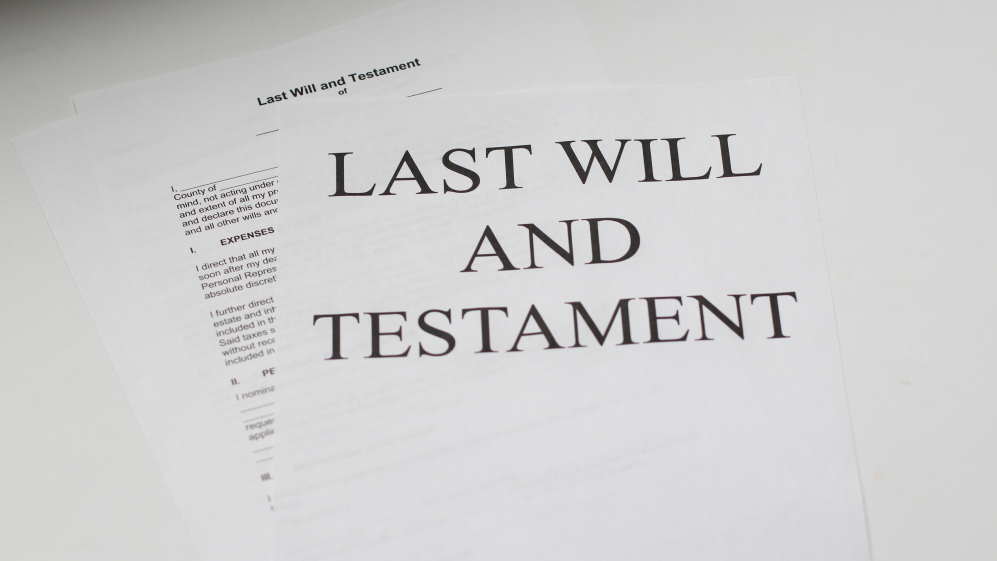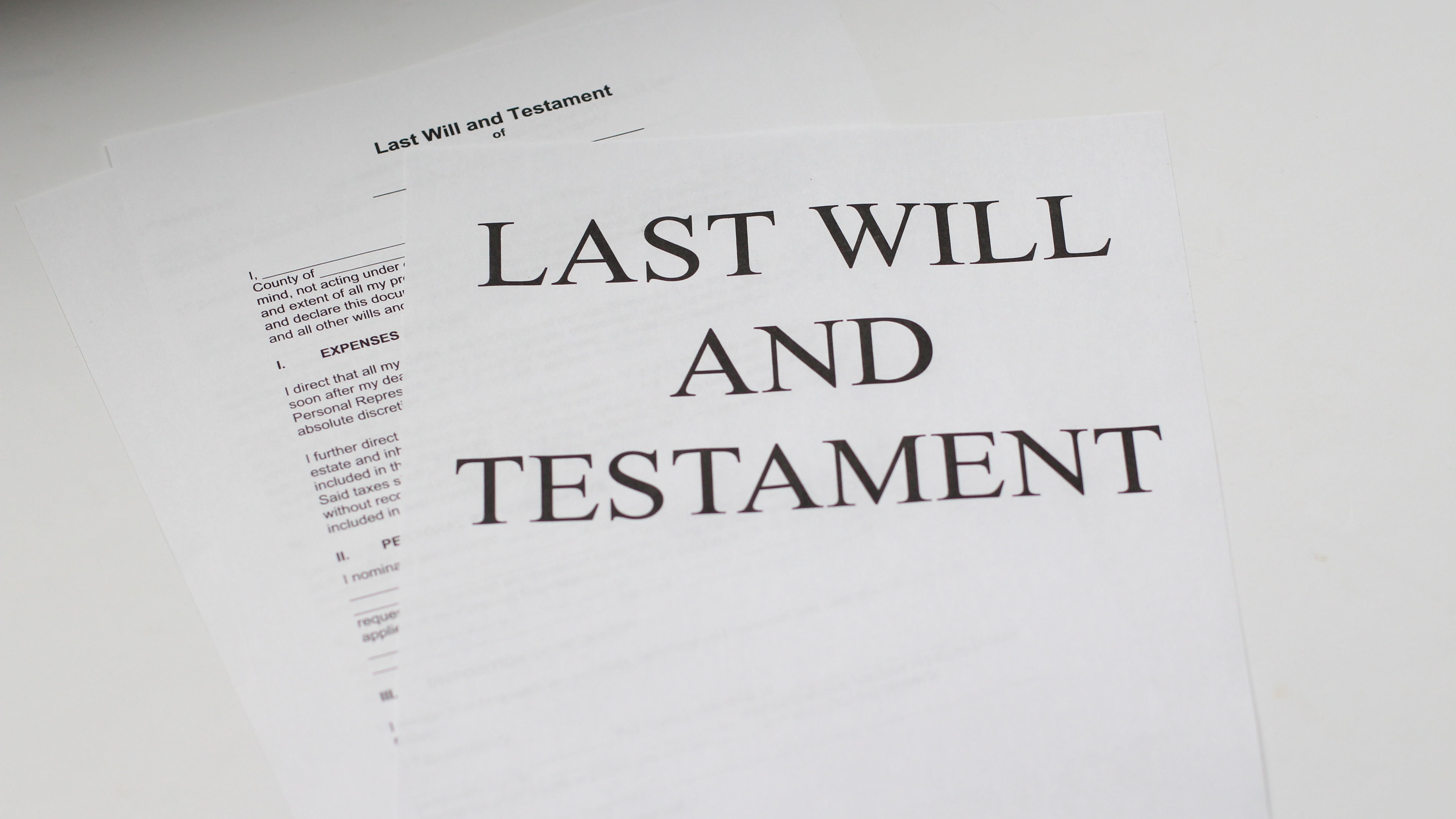Drop Your Block Here
Call (909) 265-7131 For An Appointment
Drop Your Block Here
Drop Your Block Here
- Planning with Wills
- Last Will And Testimony
- Revocable Living Trust
- Financial Power of Attorney
- Health Care Directive
- Legacy Planning
A will usually includes six main points:
Distribution of Assets:
The main purpose of a will is to ensure proper property distribution, pursuant to the wishes of the deceased. In a will, one can specify what individual, number of individuals, or organization will receive particular assets.
Appointing Guardians for Children (if applicable):
If an individual passes away and leaves behind any children, the will can determine who will be appointed the child’s or the children’s legal guardian. The will will also contain an alternate legal guardian in the event that the first legal guardian is unable to serve.
Establish Trusts:
A trust is used to manage and protect the property of the deceased as well as to determine the distribution of property. In its simplest form, a trust is an entity that holds property on another person’s behalf.
Trusts offer a flexible array of options that can enable an individual to protect their assets from taxation or creditors to ensure that such assets can benefit one’s child, spouse, or preferred beneficiary.
Trusts are commonly established for minor children, so that someone else can manage the child’s money until they reach a certain age.
Trusts are also commonly used when the deceased has been married twice. A person may want to allow a spouse to have access to certain property while the spouse is living, but for that property to ultimately pass to the decedent’s children. Trusts can help accomplish a wide number of goals.
List funeral wishes:
A will can also manage the funeral and burial processes that were determined by the deceased.
Wills can specify a number of things, for example; An individual’s desire to be buried or cremated and specifications determining where the body should be buried or the ashes should be spread. Sometimes, wills contain other information about funeral wishes too like where it should take place and even what readings might be recited.
Tax Planning:
Wills can be great tools for tax planning in order to avoid federal or state inheritance and estate taxes. This can be accomplished through a number of trusts that can be specified in the will.
Naming Executors and Trustees:
A will usually states who will be the executor of an estate, the executor being the person who will carry out a deceased individual’s wishes as listed in the will. Wills can also name the trustee of any trusts established in the will, the trustee being the person who will be in charge of carrying out the duties of the trust.
While wills can serve as powerful estate planning tools, they are only effective if they are properly drafted to suit the needs of each individual. An estate planning attorney can review all your options with you and establish a will in a manner that ensures your wishes will be honored.
What is a Last Will and Testament
General: The California Probate Code Section 6100 through Section 8226 governs the execution of Wills and contains other provisions relating to Wills law. This summary is not intended to be all inclusive of the law of Wills but does cover many material issues.
Who May Make a Will: An individual 10 or more years of age who is sound of mind may make a will. Also, a conservator may make a will for the conservatee if the conservator has been so authorized by a court order pursuant to Section 2580.
Property to Pass by Will
- A will may dispose of the following property:
- The testator’s separate property.
- The one-half of the community property that belongs to the testator under Section 100.
- The one-half of the testator’s quasi-community property that belongs to the testator under Section 101.
California Probate Code Section 6101
Who may receive property
A will may make a disposition of property to any person, including but not limited to any of the following:
- An individual;
- A corporation;
- An unincorporated association, society, lodge, or any branch thereof;
- A county, city, city and county, or any municipal corporation;
- Any state, including this state;
- The United States or any instrumentality thereof; or
- A foreign country or a governmental entity therein. See California Probate Code Section 6102.
What is a Revocable Living Trust
A Living Trust is a legal tool for financial planning that allows a person (Trustee) to hold another person’s (Settlor’s) property for the benefit of someone else (Beneficiary). Unlike a testamentary trust, a Living Trust goes into effect during the settlor’s lifetime.
In most cases, the settlor, trustee, and beneficiary are the same person (at least until that person dies or becomes incompetent). In other words, if you set up a Living Trust, you can be the settlor, the trustee and the beneficiary of the trust.
You keep full control over the property and have the right to use and spend that property as if it had never been put into the trust.
What are the advantages of a Living Trust?
The most common reasons people set up a Living Trust are:
1. You avoid Probate.
If all your property is in trust when you die (or become incompetent), then legally you don’t own anything in your name. This means, if you die, no probate (formal court administration of a decedent’s estate) is needed to pass your property on to your beneficiaries.
Or if you become incompetent, no conservatorship (formal court proceedings to administer an incompetent person’s assets) is needed to manage your property.
In either case, the person that you name in your trust as the successor trustee takes over.
If you die, the successor trustee can distribute the trust property according to your wishes without having to go to probate court to authorize the distribution.
If you become incompetent, the successor trustee can manage the property for your benefit without having to go to court for a conservatorship and without ongoing court supervision.
2. Tax Planning.
A Living Trust can help avoid or reduce estate taxes, gift taxes and income taxes, too. Your tax savings can amount to hundreds of thousands of dollars or more in some circumstances.
Is my Living Trust “revocable”? Can cancel or change it?
In most cases, yes. You can cancel or change the trust at any time. You act as trustee and manage the property for as long as you are able; and if you want, you can have all trust property returned to you at any time.
The trust usually only becomes irrevocable when you die or if you become incompetent.
Sometimes, however, settlors make their Living Trusts irrevocable from the very beginning. (Irrevocable means the trust can’t be changed or canceled.) This is often done for tax planning or to protect assets from creditors.
Depending on your own financial situation they might be appropriate, but they are not for everyone. You should consider your own situation carefully to determine if you need a living trust, and consider whether you need to hire a lawyer. The California State Bar offers detailed information on living trusts including how to find an attorney to assist you.
While many of the attorneys and other professionals who can assist you with the estate planning and trusts are honest, there are some who may do you harm. Planning an estate and choosing investments involve important legal, financial and personal decisions.
If estate planning documents are not properly prepared or executed, they may be invalid or defective which could lead to lasting damage. Consult with a lawyer or other financial advisor who is knowledgeable in estate planning, and who is not trying to sell a product which may be unnecessary, before considering a living trust or any other estate or financial planning document or service.
Unfortunately, there are unscrupulous actors working for “living trust mills” who will sell you an unnecessary living trust or use your financial information to sell you products that are less secure than your current investments. This type of scam often targets seniors lured by “free” seminars on living trusts or other estate planning presentations. These scam artists often work in assisted living centers, churches and other places where seniors gather.
Occasionally, sales agents will pose as estate planners or financial experts to gain the trust of the senior in these “free” seminars and later schedule a visit in the senior’s home to gather information they can use to steal your identity or sell you financial products you don’t need.
As an Attorney having been certified as a specialist in trusts and estate planning under the guidelines prescribed by the State Bar of California, you can rest assured that all of your concerns will be addressed, and your assets will be protected.
What is A Financial Power of Attorney
A financial power of attorney (POA) is a document that allows someone else the power to make money decisions for you as your legal representative or attorney-in-fact, if and when you are unavailable to do so yourself.
The attorney-in-fact you appoint has the authority to do some or all of the following:
- Collect Retirement benefits
- Invest
- Log into financial accounts
- Manage real estate
- Operate a business
- Pay bills
- Pay medical expenses
- Pay taxes
- Purchase insurance
- Sell assets
A durable power of attorney is created pursuant to Probate Code Section 4000 et seq. and is usually effective immediately upon execution and not affected by your subsequent disability or incapacity.
The durable power of attorney is generally given with the understanding that the attorney-in-fact will use it for the benefit of the principle and executed only in a fiduciary capacity.
Healthcare Power of Attorney (POA)
A durable POA for healthcare is more pursuant to California Civil Code Sections 2430 through 2443.
This document gives the persian you designate as your agent (the attorney in fact) the power to make health care decisions for you. Your agent must act consistently with your desires as stated in this document or otherwise made known.
The Healthcare POA Allows Your Agent Some or All of the Following:
Except as you otherwise specify in this document, this document gives your agent the power to consent to your doctor not giving treatment or stopping treatment necessary to keep you alive.
Notwithstanding this document, you have the right to make medical and other health care decisions for yourself so long as you can give informed consent with respect to the particular decision. In addition, no treatment may be given to you over your objection at the time, and health care necessary to keep you alive may not be stopped or withheld if you object at the time.
This document gives your agent authority to consent, to refuse to consent, or to withdraw consent or mental condition. This power is subject to any statement of your desires and any limitations that you include in this document. You may state in this document any types of treatment, service, or procedure to maintain, diagnose, or treat a physical or mental condition. This power is subject to any statement of your desires and any limitations that you include in this document.
You may state in this document any types of treatment that you do not desire. In addition, a court can take away the power of your agent to make health case decisions for you if your agent (1) authorizes anything that is illegal,
(2) acts contrary to your known desires, or
(3) where your desires are not known, does anything that is clearly contrary to your best interests.
The powers given by this document will exist for an indefinite period of time unless you limit their duration in this document.
You have the right to revoke the authority of your agent by notifying your agent or your treating doctor, hospital, or other health care provider orally or in writing of the revocation.
Your agent has the right to examine your medical records and to consent to their disclosure unless you limit this right in this document.
Unless you otherwise specify in this document, this document give your agent the power after you die to authorize an autopsy, donate your body for transplant and direct the disposition of your remains.
Patients increasingly demand a voice in making their wishes known at critical points in their medical treatment, and today these wishes are often spelled out in great detail.
Do not resuscitate orders, advance medical directives, pain management options are some of the medical choices patients can express through legal instruments such as a living will or by designating a health care proxy, so that these choices are clear in the event that the patient cannot express them himself.
In the quarter century since the landmark Karen Ann Quinlan case, an ethical, legal, and societal consensus supporting patients’ rights to refuse life-sustaining treatment has become a cornerstone of bioethics.
Patients now legally can write advance directives to govern their treatment decisions at a time of future incapacity.
You should consult an attorney who will listen to your wishes and draft an advanced healthcare directive that addresses all of your concerns. Christopher Scarcella is such an attorney.
Legacy Planning
Would you agree that you are worth so much more than a the things that you own and the money in your bank account?
Traditional estate planning says “no!”
Traditional estate planning is simply about transferring your tangible assets from one asset to the next.
Legacy planning is about passing along your other wealth- the type that is all too easily forgotten. Throughout our lives we acquire an abundance of wisdom that needs to be shared and preserved for generations to come. You have acquired an abundance of experience, knowledge, and vision that your family can benefit from.
We can accomplish this through our guided legacy conversations that add extraordinary value to your plan. We have a unique process in our office for passing on these intangible assets that are otherwise lost when someone dies, and bluntly, these really keep your family focused on what really matters after you are gone. You can capture your fondest wishes for your family’s happiness and we do so by asking thought provoking and insightful questions that transfer your true family wealth into physical recordings that your family will inherit.
After working with clients of all income levels, I am thoroughly convinced that the reason why old money continues across generations isn’t because of the money transfer, but because the values were. Consider the Rockefellers or Rothschilds, names synonymous with wealth and well-being in America. They consciously and deliberately pass their values across generation so that their dynasties have stretched over 175 years. When passed along with intention, a family can pass along its wealth over many lifetimes.
The wealthiest families capture and honor the values of their ancestors and along with their financial wealth, and that’s part of the reason the rich keep getting richer.
You have a life story that shouldn’t be lost, but passed down and treasured with their family. Our Legacy Conversations will capture this.
Contact our firm today to schedule an initial consultation.
Drop Your Block Here
ABOUT US
At C.S. Scarcella & Associates we are blessed to serve our clients with professioanlism and the care you deserve! We know an estate plan must adapt to the changing landscape of ongoing tax changes, and the different needs at different times in ones life. We use cutting edge planning tools to customize your estate plan to suit your unique needs at whatever stage of life you're in. From our exclusive Children's Protection Plans, to our Personal Asset TrustsTM, Living Trust PlusTM, and recorded Legacy Conversations we have you covered. Expect success because we regularly follow up to make updates. No other Will and Trust law firm offers this spectrum of services nor do any have the review process that we utilize.
REACH US
cs@scarcellaw.com
PHONE
(909) 265-7131
LOCATION
250 West 1st St., Suite 244
Claremont, CA 91711
FIND US
© 2023 C.S. Scarcella & Associates All Rights Reserved. 250 W 1st St Suite 244, Claremont, CA 91711, USA, Claremont, CA 91711 . Contact Us . Terms of Service . Privacy Policy
Drop Your Block Here
If you encounter any issues while using this site, please contact us: (909) 265-7131
Drop Your Block Here
Drop Your Block Here
Drop Your Block Here














